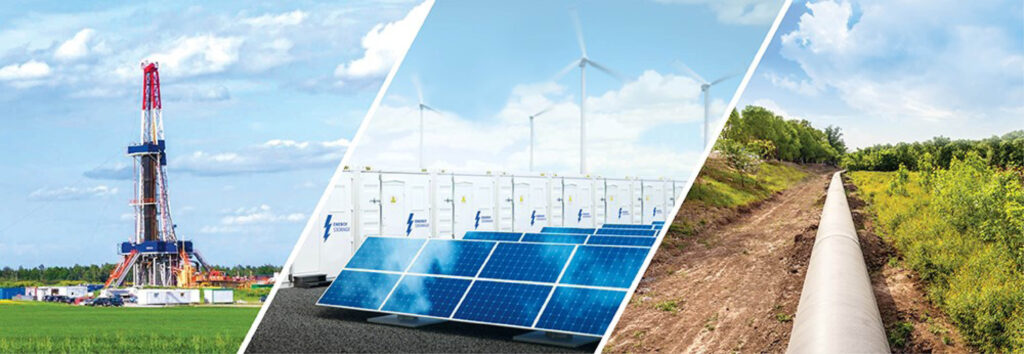Emerging Technologies

Babst Calland’s Emerging Technologies practice offers a team of legal professionals experienced in addressing the complex legal and business issues surrounding the development, deployment, commercialization, and use of emerging technologies in a variety of industries. Our comprehensive team offers advice on the full spectrum of technology-related legal matters, including corporate and commercial transactions, intellectual property, regulatory and environmental compliance, product quality, data privacy and security, human resources, litigation, and outside general counsel representation.
Our experience in representing start-ups and other emerging technology companies as well as established industry participants, investors, universities, and government entities, allows us to deliver practical solutions to assist clients in achieving their business goals in a rapidly evolving technology ecosystem. The Emerging Technologies practice provides strategic guidance on the complex legal and regulatory landscape for a wide range of emerging technologies, including:
- Robotics and autonomous systems
- SaaS
- Aerospace, space, and defense innovation
- Artificial intelligence (AI) and machine learning
- Internet of Things (IoT)
- Big Data and data analytics
- Products and services in the retail, manufacturing, airport, communications, renewable energy, healthcare, education, emergency management and system safety/security industries, among others
Emerging Technologies attorneys offer both industry and legal representation in the following key practice areas:
Corporate and Commercial, including representing and advising companies in early-stage development, mergers and acquisitions, equity and debt funding, commercial negotiation, human resources, and outside general counsel matters. Our team’s knowledge and experience in counseling clients in a wide variety of industries and subject matter areas makes Babst Calland a valuable partner to established business clients who seek to invest in or use emerging technologies as part of their strategic business plan. We are also invested in the regional innovation economies where we practice, leveraging our deep cross-sector industry experience to provide early-stage clients with education, mentorship, business counseling, strategic connections and access to resources, as appropriate.
Robotics and Autonomous Systems, including representing clients in regulatory, safety compliance, and other matters such as data acquisition, data privacy/security counseling, corporate/finance and business counseling, intellectual property, contract negotiation, technology and commercial aspects of automated/autonomous driving, unmanned aircraft systems (UAS), and mobility robotics. We provide strategic business and leadership advice and insights to manufacturers and suppliers, start-ups, and logistics, electrification, and technology companies with respect to legal and regulatory matters of national significance, while promoting innovation, efficiencies, and cost-savings.
Aerospace, including supporting the legal and regulatory needs of clients developing and deploying aerospace and commercial space technologies such as advanced air mobility, commercial space, unmanned aircraft systems (UAS/drones), mobility robotics and automated/autonomous driving systems, as well as counseling on the industry impacts of such technologies. Our team advises on various aerospace regulatory and policy issues, including FAA approvals and certifications, payload acceptance requirements, and other regulatory compliance requirements.
Transportation Technology and Energy, representing companies who are focusing on investing in and developing new transportation technologies and sustainable solutions in the energy sectors. We partner with public and private companies from start-ups to established entities that include manufacturing, vehicle and equipment suppliers, charging companies, technology entities, software providers, financiers, and related energy service producers — in managing legal, policy, and regulatory challenges and opportunities facing this growing area.
Environmental and Regulatory, including compliance with state and federal environmental regulations, disclosure of regulatory violations, and counseling on compliance issues. We address environmental and other regulatory emissions issues arising under the Clean Air Act and counsel clients in negotiations with the U.S. Department of Justice and on matters before the U.S. Environmental Protection Agency (EPA) and California Air Resources Board (CARB). Our team has experience working with technology and energy companies in developing new projects and has advised clients on regulatory issues arising from joint ventures, mergers, and acquisitions.
Data Privacy and Security, including counseling businesses in mitigating the risk of cybersecurity threats and staying compliant with regulatory requirements. Increased use of networked assets brings increased business risk. We help clients assess their current privacy security situation to address vulnerabilities that may exist and take steps to protect their businesses from a potential threat before an attack occurs, as well as ensuring proper disaster recovery and business continuity plans are in place should they need them.
Intellectual Property, including the prosecution, licensing, and enforcement of patent, copyright, and trademark rights. Among other things, our attorneys counsel clients on strategically protection of inventive creations (both in the U.S. and abroad) provide advice on freedom to operate, infringement studies, portfolio analyses, and white space evaluations, and prepare and negotiate commercial and employment documentation relating to the ownership, use, transfer, sharing, and joint development of existing and new intellectual property. Our team has experience successfully prosecuting software patents, software/hardware hybrid patents, and patents related to robotics, AI, and IoT technologies.
Litigation, including helping clients strike a balance between innovation and risk management in such areas as commercial litigation, product liability, intellectual property, non-compete/trade secrets, closely-held business disputes, and human resources matters. We provide our clients with a one-stop shop for risk management, including the development of business centric risk mitigation strategies and insurance counseling, pre-litigation support, and full litigation/dispute resolution services and support.
Discovery and Document Management, including due diligence, AI-enabled document management, post-closing integration, and project management. Babst Calland and our technology affiliate, Solvaire, have performed complex due diligence, discovery, and document management projects in the areas of acquisitions and divestitures, as well as complex corporate, commercial, and real estate transactions. In recent years, we’ve become our clients’ go-to resource in leveraging AI-assisted review and its ability to enhance efficiency and reduce cost.


